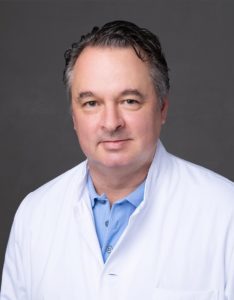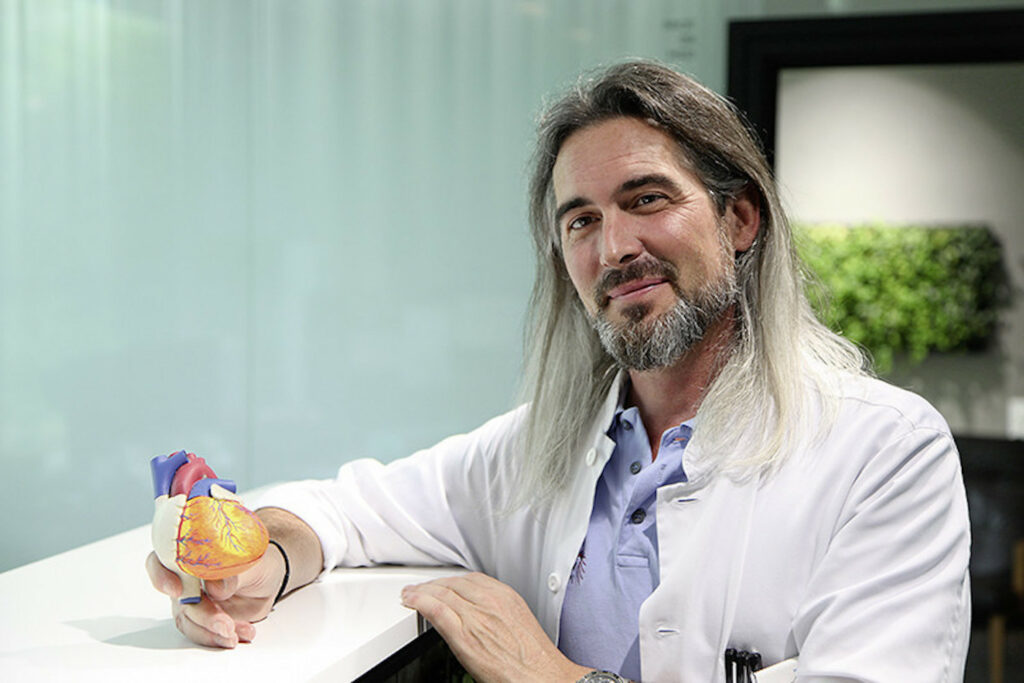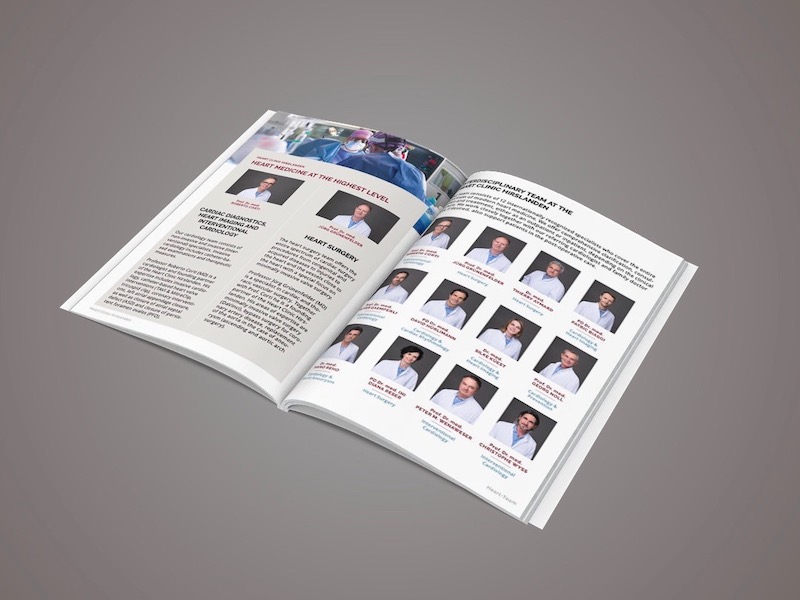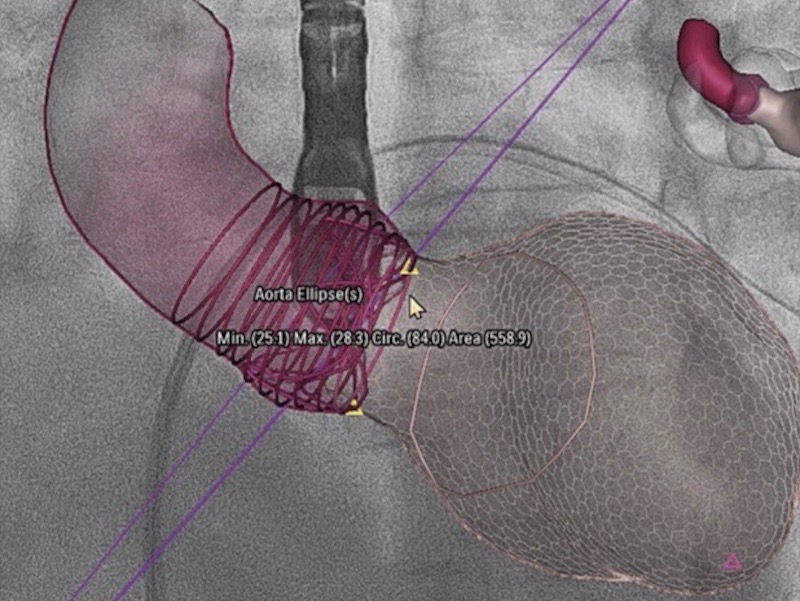Structural heart disease
05 January 2019
What are structural heart disease?

Prof. Dr. med. Peter M. Wenaweser - Interventional Cardiology - HerzKlinik Hirslanden
Structural heart disease refers to diseases of the heart that predominantly affect one of the four heart valves, i.e. the aortic, mitral, tricuspid and pulmonary valves. The most common structural heart diseases include aortic valve stenosis and mitral valve regurgitation. They usually occur in older people.
Aortic valve stenosis is a narrowing of the heart valve located in the aorta. The narrowing can be caused by both inflammation and calcification. The result is an overload of the heart muscle because the heart has to pump faster. In mitral valve regurgitation, the heart valve does not close properly and leaks. Structural heart disease can only be treated surgically.
What is the difference between a stenosis and an insufficiency?
Heart valves are functionally nothing more than a one-way valve. They regulate the blood flow in the heart in the right direction. The heart, as a blood pump, can only direct blood flow correctly if the valves are functioning normally. A heart valve can become narrowed and obstruct blood flow for a variety of reasons. This is called valve stenosis. A heart valve can also leak, causing blood to be pumped back through it. This is called an insufficiency. There are also mixed forms in which a heart valve has a stenosis and an insufficiency at the same time, with varying degrees of severity.
What symptoms and complaints are typically experienced by patients with structural heart disease?
Many valve diseases can be endured for a very long time without symptoms. If symptoms are present, this is usually a sign of advanced disease. Certain valve diseases can cause symptoms similar to those of coronary heart disease, including chest tightness and pain. A slow onset of shortness of breath, which leads to a decrease in the ability to perform daily activities, can be another consequence. Patients with a severe narrowing of the aortic valve, known as aortic stenosis, often suffer a typical circulatory collapse, known as syncope. This is a brief loss of consciousness due to impaired blood flow to the brain. In the advanced stages of mitral regurgitation, symptoms may include shortness of breath, fatigue, fluid accumulation in the lungs, swollen legs and cardiac arrhythmias with atrial fibrillation.
More reports
Symposium 2022: Heart valve therapy
Invitation and programme: "Modern Heart Valve Therapy" Dear Ladies and Gentlemen, Dear Colleagues, On Thursday, 2 June 2022, from...
Image fusion in the percutaneous edge-to-edge procedure
Is image fusion necessary or too complex in the percutaneous edge-to-edge repair procedure? Doctor Covadonga Fernandez-Golfin (University Hospital, Madrid, Spain), Prof. Roberto...
The 10 Commandments for the Heart
Heart specialist Prof. Wyss recommends service care from the age of 40 At the latest, every heart needs a service from the age of 40. Cardiologist Prof. Dr....
Cardiac Medicine Hospitals Schaffhausen
Schaffhausen Hospitals join forces with Hirslanden in cardiac medicine Media release dated 17.02.2021 From March 2021, Schaffhausen Hospitals will be working...
Heart medicine at the highest level
The Herzklinik Hirslanden has internationally renowned cardiac specialists with many years of experience in the treatment of heart disease. Thanks to state-of-the-art diagnostics and...
3D model with fluoroscopy (heart imaging)
Potential of fusion imaging and automated three-dimensional cardiac segmentation during transcatheter aortic valve replacement Cardiac transcatheter aortic valve replacement (TAVR) is the preferred procedure for the...
All specialists at the Heart Valve Center of Herzklinik Hirslanden
Prof. Dr. med. ROBERTO CORTI
Interventional Cardiology
Prof. Dr. med. JÜRG GRÜNENFELDER
Cardiac Surgery
MD. THIERRY AYMARD
Cardiac Surgery
PD Dr. med. PATRIC BIAGGI
Cardiology | Imaging
Prof. Dr. med. OLIVER GÄMPERLI
Interventional Cardiology
PD Dr. med. DAVID HÜRLIMANN
Cardiology | Rhythmology
Dr. med. IOANNIS KAPOS
Cardiology | Imaging
MD. SILKE WÖRNER
Cardiology | Imaging
Prof. Dr. med. GEORG NOLL
Cardiology | Prevention
MD. IVANO REHO
Cardiology | Aortic Aneurysm
PD Dr. med. (H) DIANA RESER
Cardiac Surgery
Prof. Dr. med. JAN STEFFEL
Cardiology | Rhythmology
Prof. Dr. med. PETER M. WENAWESER
Interventional Cardiology
Prof. Dr. med. CHRISTOPHE WYSS
Interventional Cardiology





